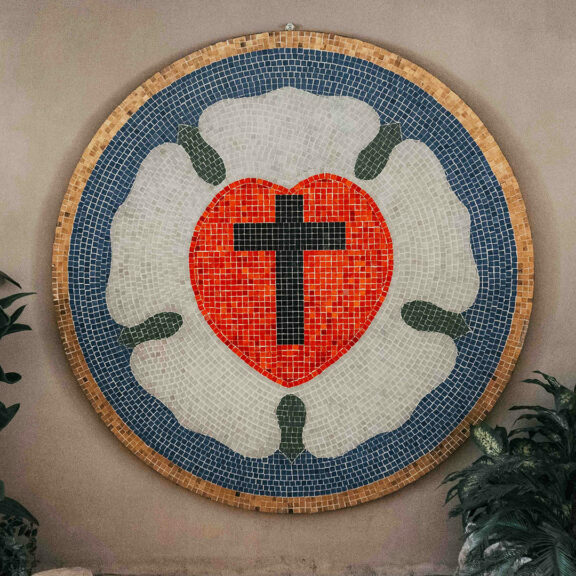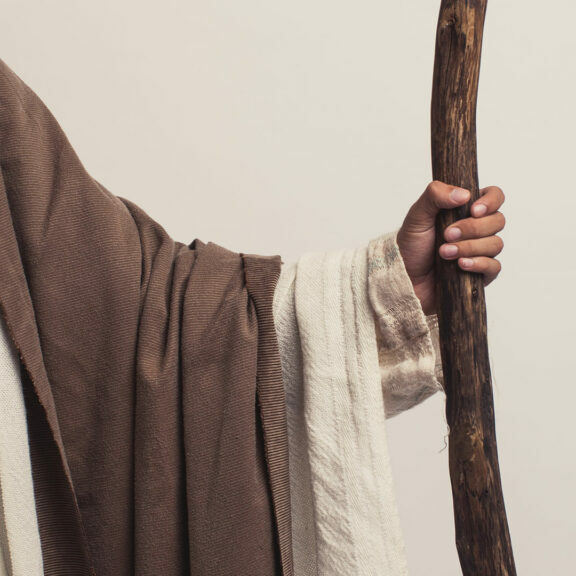March 29, 2018
Pastor John Hering
6 But in fact the ministry Jesus has received is as superior to theirs as the covenant of which he is mediator is superior to the old one, since the new covenant is established on better promises.
7 For if there had been nothing wrong with that first covenant, no place would have been sought for another. 8 But God found fault with the people and said:
“The days are coming, declares the Lord,
when I will make a new covenant
with the people of Israel
and with the people of Judah.
9 It will not be like the covenant
I made with their ancestors
when I took them by the hand
to lead them out of Egypt,
because they did not remain faithful to my covenant,
and I turned away from them,
declares the Lord.
10 This is the covenant I will establish with the people of Israel
after that time, declares the Lord.
I will put my laws in their minds
and write them on their hearts.
I will be their God,
and they will be my people.
11 No longer will they teach their neighbor,
or say to one another, ‘Know the Lord,’
because they will all know me,
from the least of them to the greatest.
12 For I will forgive their wickedness
and will remember their sins no more.”
13 By calling this covenant “new,” he has made the first one obsolete; and what is obsolete and outdated will soon disappear.
Hebrews 8:6-13
I spotted a strange charge to my debit card a few days ago. It wasn’t anything major…a $5.00 purchase…but the charge came from somewhere in New Mexico. New Mexico, I wondered…I hadn’t made any purchases to New Mexico. After a quick search on the internet, I realized this was some kind of fraudulent charge. As my mind raced with all fear and frustration, I tried to figure out how I was going to fit in time to deal with this when it was already a busy week. Plus, I wondered what else had been stolen and what it might take to get my identity back. I wish there was a bank that could absolutely guarantee that my identity was safe.
When Jesus talked about a new covenant in our lesson from Hebrews 8, he was talking about the kind of guarantee that we are all looking for in our lives. Not a guarantee that our money or identity won’t be stolen, but a guarantee on our whole life. Tonight, as we look at the old covenant God made with the people of Israel and the new covenant he made through Jesus for all people in our series from the book of Hebrews, Jesus our Great High Priest, we will focus on Jesus as the mediator of a new covenant.
Christ is the mediator of the new covenant, which is better than the old.
Before we talk about the new covenant, we need to understand what the old covenant was for the people of Israel. The term covenant is another way of saying an agreement or promise like a mortgage. A mortgage is an agreement between you and a bank or lender that they pay for your house so that you can live in it, while you pay them back over 15, 20 or 30 years. The agreement holds up as long as both parties keep up their end of the bargain. If either party breaks the agreement, like not sending in a monthly mortgage payment, then the agreement is void. When a mortgage agreement isn’t kept, the bank gets your house and you move back in with mom and dad. The old covenant God made with Israel at the base of Mount Sinai after delivering them from the Egyptians was similar to a mortgage. God financed a home for the people of Israel by freeing them from Egypt and promising to give them the land of Canaan. In return for his providing the Israelites a home, God asked that they obey him as recorded in
Now if you obey me fully and keep my covenant, then out of all nations you will be my treasured possession. Although the whole earth is mine, 6 you will be for me a kingdom of priests and a holy nation.’
Exodus 19:5-6
And after they heard what God asked, the Israelites responded,
“We will do everything the Lord has said.”
Exodus 19:8
The Israelites responded with full acceptance to all of God’s conditions, but after reading the fine print, it is not hard for us to believe that this covenant didn’t last very long. Israel may have seen God send the 10 plagues on Egypt, part the Red Sea, produce water from a rock and send manna and quail for them to eat while in the desert, but it was their end of the bargain they needed to be worried about. God’s agreement with Israel is recorded in Exodus chapter 19, but the next 21 chapters of Exodus and all 27 chapters of Leviticus outline all the requirements God had for Israel.
The old covenant was too much for Israel and within a few days after agreeing to trust and obey God alone, Israel broke the covenant. They broke it by creating a calf idol made out of gold, which the author of Hebrews quotes from Jeremiah 31 where the Lord said,
“They did not remain faithful to my covenant.”
It was now clear to Israel that any covenant between them and God could not depend on them keeping up their end of the bargain, so God continued to say through Jeremiah,
“It will not be like the covenant I made with their ancestors when I took them by the hand to lead them out of Egypt.”
The new covenant would have to be different from the old covenant. It would have to be an agreement that people couldn’t ruin, so God made a covenant based on unconditional promises and forgiveness, as God said through Jeremiah,
“I will forgive their wickedness and will remember their sins no more.”
All of this was accomplished through Jesus, but does that mean there wasn’t forgiveness of sins in the Old Testament and that the only way an Israelite got into heaven was by keeping God’s law perfectly? No, the promise of forgiveness was always there for the Old Testament believers too.
God’s promise of forgiveness came before Jesus died on the cross and before the covenant at Mount Sinai. After Adam and Eve fell into sin in the Garden of Eden, God said in
“And I will put enmity between you and the woman, and between your offspring and hers; he will crush your head, and you will strike his heel.”
Genesis 3:15
This prophesied Jesus’ complete victory over Satan and the suffering Jesus would endure to win that victory. Abraham was also given the promise of the Savior and we read in
“Abram believed the Lord, and he credited it to him as righteousness.”
Genesis 15:6
In each case, Jesus was going to win the victory and we would receive the credit through faith.
The covenant God made with Israel at Mount Sinai did not replace the promise of the Savior but supported the promises of the Savior. It played an important role in keeping Israel together as a nation until the Savior was born. It also reminded the people of their sin and need for a Savior through the instructions for the sacrifices that foreshadowed Jesus’ sacrificial death on the cross.
As New Testament believers, we know how God put his new covenant into effect. In Matthew 26:28 Jesus said,
“This is my blood of the covenant, which is poured out for many for the forgiveness of sins.”
Jesus became the mediator of the new covenant by offering himself on the cross for the sins of the world. By his blood, God can unconditionally promise the whole world of sinners, “Your sins are forgiven. My Son has paid your debt and removed your guilt.”
Christ is the mediator of the new covenant, which is stronger than the old.
Free from our sins we now live new lives as God said through Jeremiah,
“I will put my laws in their minds and write them on their hearts.”
The old covenant bound Israel to keeping laws in order to have God’s good will toward them and the same is true for us when we fall into the trap of believing God will only love us when we are good enough. However, there is no earning God’s favor through his law whether by keeping it better than others or keeping most of it most of the time. Instead, we now live forgiven in Christ, which means we are free to serve God out of thankfulness, not in fear of God’s wrath and punishment.
Jesus had this in mind when he said to his disciples in John 13,
“A new command I give you: Love one another.”
The command to love wasn’t new, but the motive for showing love was new. Jesus said,
“. . . as I have loved you.”
With hearts warmed by God’s love for us, we strive to live lives of love for God and for our fellow men as St. Paul wrote in 2 Corinthians 5,
“Christ’s love compels us, because we are convinced that one died for all, and therefore all died. And he died for all, that those who live should no longer live for themselves but for him who died for them and was raised again.”
That’s the power of the new covenant—the power of God’s forgiving love in Christ!
Christ is the mediator of the new covenant, which is smarter than the old.
The power of Christ’s love working in our hearts means that we no longer need a laundry list of rules to keep. Jeremiah said:
“No longer will they teach their neighbor, or say to one another, ‘Know the Lord,’ because they will all know me, from the least of them to the greatest.”
It is important to note that Jeremiah says that no one will have to say, “Know the Lord.” The Lord is God’s covenant name and emphasizes his grace, mercy and forgiveness. Jesus’ crucifixion was the ultimate display of the Lord’s work as Jesus once said to his disciples in Luke 10,
“Blessed are the eyes that see what you see. For I tell you that many prophets and kings wanted to see what you see but did not see it, and to hear what you hear but did not hear it.”
We are truly blessed to know all Jesus accomplished for us.
When I spotted a strange charge to my debit card a few days ago I remember thinking that it would be great to have a bank that could absolutely guarantee that my identity was safe. There will never be a bank that can guarantee your identity will never be stolen. There will never be a place you can truly call yours in this world because eventually we all have to give up what we own in death. And there will be days when the stresses of this world threaten to overwhelm us, but they cannot break the new covenant Jesus made between us and God.
Confident of Jesus work on our behalf to make peace between us and God, let us strive to grow in this knowledge of Christ as did Paul the great apostle who wrote in Philippians 3,
“I want to know Christ—yes, to know the power of his resurrection and participation in his sufferings, becoming like him in his death, and so, somehow, attaining to the resurrection from the dead.”
And may we devote ourselves to making known to others the knowledge of our glorious Lord! We do this in a variety of ways—through personal witness and prayers and with the offerings we bring our Lord to support the work of his gospel ministry. Go in peace knowing that Jesus, our Great High Priest, is the mediator of a new covenant. Amen.



